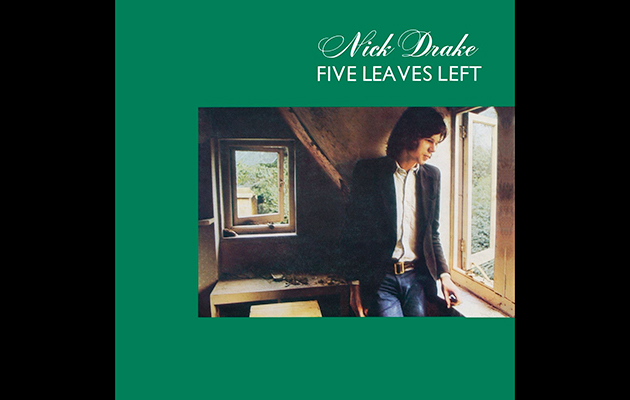Whereas the sound of Five Leaves Left had largely been originated by Drake himself, Bryter Layter drew much of its feel from the retinue of players aggregated around Sound Techniques, and from Boyd’s ideas. While this was fine as the record began, as sessions went on, artist and producer clashed.
Two issues were divisive. When Drake played at the Royal Festival Hall in autumn 1969, he had been sent back on for an encore, and played a composition that Boyd hadn’t previously heard. It was to his ears one of the greatest Drake had yet written. With sessions for Bryter Layter in progress, producer enthused to artist about the track.
“I said, ‘Nick! That song!’, and he said, ‘It’s not really finished.’ I said, ‘We’ve got to have it, we’ve got to record it.’ I heard that album with that song at the heart of it, the ‘Time Has Told Me’ or the ‘River Man’ of that album. He said, ‘If it’s finished we can record it, if it’s not, we can’t.’”
The second issue was financial. Drake and Robert Kirby approached Boyd with a unifying concept for the album: each side would begin and end with an instrumental piece.
“I heard the instrumentals and I thought they were kind of bland, MOR,” says Joe Boyd. “I hated them, I really argued with him. On one session, we ran out of time and we had only got three of them done. It would have cost a fortune to record the fourth. So I refused, which is why the record has that slightly off-kilter concept – an instrumental at the beginning of each side and the end of the second side.
“Whether he felt he and Robert had overdone it with strings and brass or resented me imposing Chris and John Cale on him I don’t know, but he stamped his foot at that point. He said that the next album was going to be just him and guitar.”
Boyd’s conflict with Drake was a metaphor for his larger problems. In spite of having broken new acts, made great albums, and defined its own aesthetic, Witchseason was under serious financial pressure. Come the winter of 1970, it had begun to seem that its period of charmed creativity was coming to an end. Certainly, Drake himself was disappointed with his lack of progress.
“Nick believed that he was good,” says Boyd. “I told him. John Peel told him, John Martyn told him. John Wood told him. A lot of people told him he was really, really good – and the records didn’t sell. He had a belief and an expectation he could reach people. It was the question of having acceptance, having an audience that listens to you. It wasn’t, ‘Why didn’t I make more money?’ It was more, ‘Why didn’t people respond to the music?’
“There was a certain amount of guilt and frustration on my part that I hadn’t come up with the answer,” says Boyd. “What happened in 1970 was that I realised that it wasn’t easy. The Incredible String Band becoming Scientologists… Sandy Denny wanting Trevor Lucas in her band. Then Nick said to me he wanted to make his next record with no arrangements and no overdubs. I felt that it was career suicide.”
When in 1971 the opportunity came to run the film music department at Warner Brothers in Los Angeles, Boyd seceded Witchseason’s artists to Island, and booked a plane ticket.



